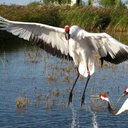Rhodioloside ameliorates depressive behavior via up-regulation of monoaminergic system activity and anti-inflammatory effect in olfactory bulbectomized rats.
Keywords
Abstract
Rhodioloside, a major constituent from roots of Rhodiola rosea, has been previously confirmed to alleviate the hyperactivity in olfactory bulbectomized (OBX) rats exposed to the open field and to decrease the immobility time in the forced swimming test (FST) and tail suspension test (TST). However, its antidepressant effects and mechanisms remain unclear. This study aimed to evaluate the antidepressant effect and the potential mechanisms of rhodioloside in OBX rats. ELISA kits, HPLC-MS and western blot analysis were applied to explore the underlying antidepressant mechanisms of rhodioloside. Rhodioloside (20, 40mg/kg) significantly reversed OBX-induced reduction in sucrose consumption. It was also observed that administration of rhodioloside (20, 40mg/kg) decreased pro-inflammatory cytokines interleukin-1 beta (IL-1β) and interleukin-6 (IL-6) levels and inhibits nuclear factor-kappa B (NF-κB) activation, as well as normalized the monoaminergic system changes in prefrontal cortex (PFC) of OBX rats. These results confirmed the antidepressant-like effect of rhodioloside, which might be primarily based on its up-regulation of the monoaminergic system activity and anti-inflammatory effect.




